Piano Sheet Music
 "For me, singing sad songs often has a way of healing a situation. It gets the hurt out in the open into the light, out of the darkness." Reba McEntire
"For me, singing sad songs often has a way of healing a situation. It gets the hurt out in the open into the light, out of the darkness." Reba McEntire
Artie Shaw
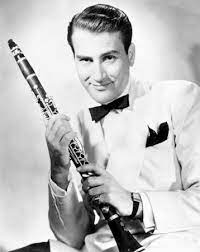
Artie Shaw (born Arthur Jacob Arshawsky; May 23, 1910 – December 30, 2004) was an American clarinetist, composer, bandleader, actor and author of both fiction and non-fiction.Widely regarded as "one of jazz's finest clarinetists", Shaw led one of the United States' most popular big bands in the late 1930s through the early 1940s. Though he had numerous hit records, he was perhaps best known for his 1938 recording of Cole Porter's "Begin the Beguine." Before the release of "Beguine," Shaw and his fledgling band had languished in relative obscurity for over two years and, after its release, he became a major pop artist within short order. The record eventually became one of the era's defining recordings. Musically restless, Shaw was also an early proponent of what became known much later as Third Stream music, which blended elements of classical and jazz forms and traditions. His music influenced other musicians, such as Monty Norman in England, with the vamp of the James Bond Theme, possibly influenced by 1938's "Nightmare".
Traditional

D-gray man
D.Gray-man is a Japanese manga series written and illustrated by Katsura Hoshino. Set in an alternate 19th century, it tells the story of a young Allen Walker, who joins an organization of exorcists named the Black Order.
The Sex Pistols
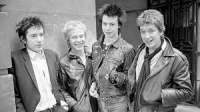
The Sex Pistols were an English punk rock band that formed in London in 1975. Although their initial career lasted just two and a half years, they are regarded as one of the most groundbreaking acts in the history of popular music.
Bach

Johann Sebastian Bach (31 March 1685 – 28 July 1750) was a German composer and organist whose sacred and secular works for choir, orchestra, and solo instruments drew together the strands of the Baroque period and brought it to its ultimate maturity. Although he introduced no new forms, he enriched the prevailing German style with a robust contrapuntal technique, an unrivalled control of harmonic and motivic organisation in composition for diverse musical forces, and the adaptation of rhythms and textures from abroad, particularly Italy and France.
Revered for their intellectual depth and technical and artistic beauty, Bach's works include the Brandenburg concertos; the Goldberg Variations; the English Suites, French Suites, Partitas, and Well-Tempered Clavier; the Mass in B Minor; the St. Matthew Passion; the St. John Passion; The Musical Offering; The Art of Fugue; the Sonatas and Partitas for violin solo; the Cello Suites; more than 200 surviving cantatas; and a similar number of organ works, including the celebrated Toccata and Fugue in D Minor.
While Bach's fame as an organist was great during his lifetime, he was not particularly well-known as a composer. His adherence to Baroque forms and contrapuntal style was considered "old-fashioned" by his contemporaries, especially late in his career when the musical fashion tended towards Rococo and later Classical styles. A revival of interest and performances of his music began early in the 19th century, and he is now widely considered to be one of the greatest composers in the Western tradition.
Revered for their intellectual depth and technical and artistic beauty, Bach's works include the Brandenburg concertos; the Goldberg Variations; the English Suites, French Suites, Partitas, and Well-Tempered Clavier; the Mass in B Minor; the St. Matthew Passion; the St. John Passion; The Musical Offering; The Art of Fugue; the Sonatas and Partitas for violin solo; the Cello Suites; more than 200 surviving cantatas; and a similar number of organ works, including the celebrated Toccata and Fugue in D Minor.
While Bach's fame as an organist was great during his lifetime, he was not particularly well-known as a composer. His adherence to Baroque forms and contrapuntal style was considered "old-fashioned" by his contemporaries, especially late in his career when the musical fashion tended towards Rococo and later Classical styles. A revival of interest and performances of his music began early in the 19th century, and he is now widely considered to be one of the greatest composers in the Western tradition.
Santana
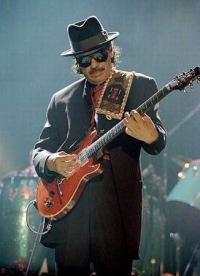
Santana is a flexible number of musicians accompanying Carlos Santana since the late 1960s. Just like Santana himself, the band is known for helping make Latin rock famous in the rest of the world.
The band was formed in 1966 in San Francisco. The first members were Carlos Santana (lead guitar), Tom Frazier (guitar), Mike Carabello (percussion), Rod Harper (drums), Gus Rodriguez (bass) and Gregg Rolie (keyboard, vocal). In the following years the members of the group changed frequently for a number of reasons, and from 1971 to 1972 there was a brief separation between the group and Santana.
Santana himself rarely sings in his songs despite being the leader of the band and recent hits have been frequently accompanied by a guest singer, rather than the members of the band.
In 1998, the group was inducted into the Rock & Roll Hall of Fame, with Carlos Santana, Jose Chepito Areas, David Brown, Mike Carabello, Gregg Rolie and Michael Shrieve being honored.
The band was formed in 1966 in San Francisco. The first members were Carlos Santana (lead guitar), Tom Frazier (guitar), Mike Carabello (percussion), Rod Harper (drums), Gus Rodriguez (bass) and Gregg Rolie (keyboard, vocal). In the following years the members of the group changed frequently for a number of reasons, and from 1971 to 1972 there was a brief separation between the group and Santana.
Santana himself rarely sings in his songs despite being the leader of the band and recent hits have been frequently accompanied by a guest singer, rather than the members of the band.
In 1998, the group was inducted into the Rock & Roll Hall of Fame, with Carlos Santana, Jose Chepito Areas, David Brown, Mike Carabello, Gregg Rolie and Michael Shrieve being honored.
Tchaikovsky

Pyotr Il'yich Tchaikovsky (May 7 1840 â November 6 1893) was a Russian composer of the Romantic era. While not part of the nationalistic music group known as "The Five", Tchaikovsky wrote music which, in the opinion of Harold Schonberg, was distinctly Russian: plangent, introspective, with modally-inflected melody and harmony.
Aesthetically, Tchaikovsky remained open to all aspects of Saint Petersburg musical life. He was impressed by Serov and Balakirev as well as the classical values upheld by the conservatory. Both the progressive and conservative camps in Russian music at the time attempted to win him over. Tchaikovsky charted his compositional course between these two factions, retaining his individuality as a composer as well as his Russian identity. In this he was influenced by the ideals of his teacher Nikolai Rubinstein and Nikolai's brother Anton.
Tchaikovsky's musical cosmopolitanism led him to be favored by many Russian music-lovers over the "Russian" harmonies and styles of Mussorgsky, Borodin and Rimsky-Korsakov.
Nonetheless he frequently adapted Russian traditional melodies and dance forms in his music, which enhanced his success in his home country. The success in St. Petersburg at the premiere of his Third Orchestral Suite may have been due in large part to his concluding the work with a polonaise. He also used a polonaise for the final movement of his Third Symphony.
Aesthetically, Tchaikovsky remained open to all aspects of Saint Petersburg musical life. He was impressed by Serov and Balakirev as well as the classical values upheld by the conservatory. Both the progressive and conservative camps in Russian music at the time attempted to win him over. Tchaikovsky charted his compositional course between these two factions, retaining his individuality as a composer as well as his Russian identity. In this he was influenced by the ideals of his teacher Nikolai Rubinstein and Nikolai's brother Anton.
Tchaikovsky's musical cosmopolitanism led him to be favored by many Russian music-lovers over the "Russian" harmonies and styles of Mussorgsky, Borodin and Rimsky-Korsakov.
Nonetheless he frequently adapted Russian traditional melodies and dance forms in his music, which enhanced his success in his home country. The success in St. Petersburg at the premiere of his Third Orchestral Suite may have been due in large part to his concluding the work with a polonaise. He also used a polonaise for the final movement of his Third Symphony.
W.A. Mozart

Wolfgang Amadeus Mozart (German: , full baptismal name Johannes Chrysostomus Wolfgangus Theophilus Mozart (27 January 1756 – 5 December 1791), was a prolific and influential composer of the Classical era. He composed over 600 works, many acknowledged as pinnacles of symphonic, concertante, chamber, piano, operatic, and choral music. He is among the most enduringly popular of classical composers.
Mozart showed prodigious ability from his earliest childhood in Salzburg. Already competent on keyboard and violin, he composed from the age of five and performed before European royalty; at 17 he was engaged as a court musician in Salzburg, but grew restless and traveled in search of a better position, always composing abundantly. While visiting Vienna in 1781, he was dismissed from his Salzburg position. He chose to stay in the capital, where he achieved fame but little financial security. During his final years in Vienna, he composed many of his best-known symphonies, concertos, and operas, and the Requiem. The circumstances of his early death have been much mythologized. He was survived by his wife Constanze and two sons.
Mozart learned voraciously from others, and developed a brilliance and maturity of style that encompassed the light and graceful along with the dark and passionate—the whole informed by a vision of humanity "redeemed through art, forgiven, and reconciled with nature and the absolute." His influence on subsequent Western art music is profound. Beethoven wrote his own early compositions in the shadow of Mozart, of whom Joseph Haydn wrote that "posterity will not see such a talent again in 100 years."
Mozart showed prodigious ability from his earliest childhood in Salzburg. Already competent on keyboard and violin, he composed from the age of five and performed before European royalty; at 17 he was engaged as a court musician in Salzburg, but grew restless and traveled in search of a better position, always composing abundantly. While visiting Vienna in 1781, he was dismissed from his Salzburg position. He chose to stay in the capital, where he achieved fame but little financial security. During his final years in Vienna, he composed many of his best-known symphonies, concertos, and operas, and the Requiem. The circumstances of his early death have been much mythologized. He was survived by his wife Constanze and two sons.
Mozart learned voraciously from others, and developed a brilliance and maturity of style that encompassed the light and graceful along with the dark and passionate—the whole informed by a vision of humanity "redeemed through art, forgiven, and reconciled with nature and the absolute." His influence on subsequent Western art music is profound. Beethoven wrote his own early compositions in the shadow of Mozart, of whom Joseph Haydn wrote that "posterity will not see such a talent again in 100 years."
Murray Gold
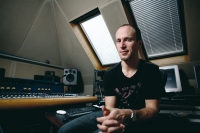
Murray Jonathan Gold (born 28 February 1969) is an English composer for stage, film, and television and a dramatist for both theatre and radio. He is best known as the musical director and composer of the music for Doctor Who from 2005, until he stepped down in 2018 after the tenth series aired in 2017. He has been nominated for five BAFTAs.Born in Portsmouth to a Jewish family, Gold initially pursued drama as a vocation, writing and playing music as a hobby, but switched to music when he became musical director for the University of Cambridge's Footlights society.
Gilbert DeBenedetti
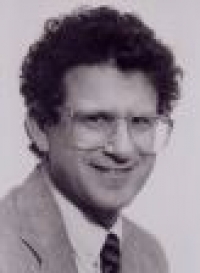
Pittsburgh, Pennsylvania (USA), getting degrees in Music from Carnegie-Mellon University and from the University of Pittsburgh.
Besides arranging music for piano, I have enjoyed teaching Music Theory. I taught that subject at the University of Pittsburgh at Greensburg and at the Pittsburgh High School for Creative and Performing Arts (CAPA). I also have been involved with the Advanced Placement Music Theory Exam, developed and administered by the Educational Testing Service and the College Board.
Besides arranging music for piano, I have enjoyed teaching Music Theory. I taught that subject at the University of Pittsburgh at Greensburg and at the Pittsburgh High School for Creative and Performing Arts (CAPA). I also have been involved with the Advanced Placement Music Theory Exam, developed and administered by the Educational Testing Service and the College Board.
Stevie Nicks
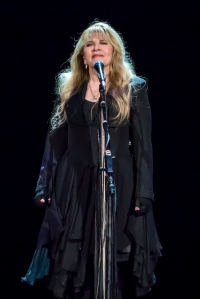
Stephanie Lynn "Stevie" Nicks (born May 26, 1948) is an American singer and songwriter known for her work with the band Fleetwood Mac and as a solo artist. She is known for her distinctive voice, mystical stage persona and poetic, symbolic lyrics.Nicks joined Fleetwood Mac in 1975 along with her then-boyfriend Lindsey Buckingham. In 1981, while remaining a member of Fleetwood Mac, Nicks began her solo career, releasing the studio album Bella Donna, which topped the Billboard 200 and has reached multiplatinum status. She has released eight solo studio albums.
The Light in the Piazza
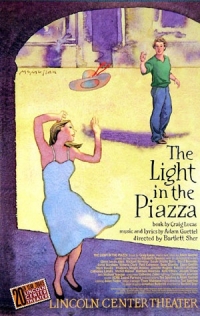
The Light in the Piazza is a musical with a book by Craig Lucas and music and lyrics by Adam Guettel.
Based on a novella by Elizabeth Spencer, it is set in Florence and Rome in the summer of 1953. A young American tourist, Clara Johnson, meets and falls for young Italian Fabrizio Naccarelli. When Clara's mother Margaret learns of the affair, she opposes it for reasons that only gradually become known to the audience.
The score breaks from the traditional Broadway sound of hummable tunes by veering into the territory of Neoromantic classical music and opera, with unexpected harmonic shifts and extended melodic structures, and is lushly scored for piano, harp, guitar, and strings, alongside a handful of wind and percussionists. The lyrics are unique in that many of them are in Italian and broken English, as many of the characters are fluent only in Italian.
Based on a novella by Elizabeth Spencer, it is set in Florence and Rome in the summer of 1953. A young American tourist, Clara Johnson, meets and falls for young Italian Fabrizio Naccarelli. When Clara's mother Margaret learns of the affair, she opposes it for reasons that only gradually become known to the audience.
The score breaks from the traditional Broadway sound of hummable tunes by veering into the territory of Neoromantic classical music and opera, with unexpected harmonic shifts and extended melodic structures, and is lushly scored for piano, harp, guitar, and strings, alongside a handful of wind and percussionists. The lyrics are unique in that many of them are in Italian and broken English, as many of the characters are fluent only in Italian.
Joe Iconis
Joseph Peter Philip Iconis (born September 22, 1981) is an American musical theatre writer. He is a graduate of the NYU Tisch School of the Arts Graduate Musical Theatre Writing Program. He is a recipient of the 2006 Jonathan Larson Award, the 2007 Ed Kleban Award, and a Backstage Bistro Award. His innovative rock musical style has brought forth several shows. He has collaborated with Robert Maddock and Reza Jacobs on “Plastic! The Musical,” and Robert Maddock on “Triumphant Baby!”
Joe is also a concert performer, performing with his musical theater family or as part of the Joe Iconis Rock and Roll Jamboree at The Laurie Beechman Theater and Joe’s Pub. As part of his “Mule Revolution Tour 2008,” Joe had several popular musical theater faces guest as part of his concerts including Anthony Rapp (Original cast of Rent,) and John Gallagher Jr. (original cast of Spring Awakening). Joe is closely associated with a group of actors sometimes referred to as “The Family.” Notable “family members” include Jason “SweetTooth” Williams, Lance Rubin, Katrina Rose Dideriksen, Krysta Rodriguez (Spring Awakening, In The Heights), Lorinda Lisitza, Badia Farha, Lauren Marcus, Matt Hinkley, Nick Blaemire, Jason Tam, Sarah Glendening, Liz Lark Brown, and musical theater icon Annie Golden (Assassins, Hair, Xanadu.)
Iconis is also a member of a band, the Big Galoots, along with Matt Hinkley, Lance Rubin, and Jason "SweetTooth" Williams.
Joe is also a concert performer, performing with his musical theater family or as part of the Joe Iconis Rock and Roll Jamboree at The Laurie Beechman Theater and Joe’s Pub. As part of his “Mule Revolution Tour 2008,” Joe had several popular musical theater faces guest as part of his concerts including Anthony Rapp (Original cast of Rent,) and John Gallagher Jr. (original cast of Spring Awakening). Joe is closely associated with a group of actors sometimes referred to as “The Family.” Notable “family members” include Jason “SweetTooth” Williams, Lance Rubin, Katrina Rose Dideriksen, Krysta Rodriguez (Spring Awakening, In The Heights), Lorinda Lisitza, Badia Farha, Lauren Marcus, Matt Hinkley, Nick Blaemire, Jason Tam, Sarah Glendening, Liz Lark Brown, and musical theater icon Annie Golden (Assassins, Hair, Xanadu.)
Iconis is also a member of a band, the Big Galoots, along with Matt Hinkley, Lance Rubin, and Jason "SweetTooth" Williams.
Fariborz Lachini
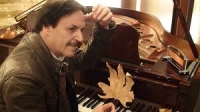
He started his career in Iran writing music for children, creating "Avaz Faslha va Rangha" at the age of 18 which caught the attention of royal family of the time. The title of national Iranian TV's children programming for more than two decades, was one of his earlier works. Before Iran's Islamic Revolution, he also created music for some of Iran's pop icons.
After the Islamic Revolution he moved to Europe to study Musicology in the Universite de Paris – Sorbonne. It was then that his music became influenced by the European styles. He returned home and created one of the best loved contemporary solo piano albums of all in Iran with a unique style, a combination of Persian and European Romantic styles called "Paeez Talaee", also known as Golden Autumn, which has been the number-one seller for years in Iran and has attracted fans from all around the world
After the Islamic Revolution he moved to Europe to study Musicology in the Universite de Paris – Sorbonne. It was then that his music became influenced by the European styles. He returned home and created one of the best loved contemporary solo piano albums of all in Iran with a unique style, a combination of Persian and European Romantic styles called "Paeez Talaee", also known as Golden Autumn, which has been the number-one seller for years in Iran and has attracted fans from all around the world
Chopin

Frédéric Chopin (1 March 1810 – 17 October 1849) was a Polish composer and virtuoso pianist of the Romantic period. He is widely regarded as the greatest Polish composer, and ranks as one of music's greatest tone poets.
He was born in the village of Żelazowa Wola, in the Duchy of Warsaw, to a Polish mother and French-expatriate father, and in his early life was regarded as a child-prodigy pianist. In November 1830, at the age of 20, Chopin went abroad; following the suppression of the Polish November Uprising of 1830–31, he became one of many expatriates of the Polish "Great Emigration."
In Paris, he made a comfortable living as a composer and piano teacher, while giving few public performances. A Polish patriot,
Chopin's extant compositions were written primarily for the piano as a solo instrument. Though technically demanding, Chopin's style emphasizes nuance and expressive depth rather than virtuosity. Chopin invented musical forms such as the ballade and was responsible for major innovations in forms such as the piano sonata, waltz, nocturne, étude, impromptu and prelude. His works are mainstays of Romanticism in 19th-century classical music.
He was born in the village of Żelazowa Wola, in the Duchy of Warsaw, to a Polish mother and French-expatriate father, and in his early life was regarded as a child-prodigy pianist. In November 1830, at the age of 20, Chopin went abroad; following the suppression of the Polish November Uprising of 1830–31, he became one of many expatriates of the Polish "Great Emigration."
In Paris, he made a comfortable living as a composer and piano teacher, while giving few public performances. A Polish patriot,
Chopin's extant compositions were written primarily for the piano as a solo instrument. Though technically demanding, Chopin's style emphasizes nuance and expressive depth rather than virtuosity. Chopin invented musical forms such as the ballade and was responsible for major innovations in forms such as the piano sonata, waltz, nocturne, étude, impromptu and prelude. His works are mainstays of Romanticism in 19th-century classical music.
Mozart

Wolfgang Amadeus Mozart, full name Johann Chrysostom Wolfgang Amadeus Mozart (27 January 1756 â 5 December 1791) was a prolific and influential composer of the Classical era. His over 600 compositions include works widely acknowledged as pinnacles of symphonic, concertante, chamber, piano, operatic, and choral music. Mozart is among the most enduringly popular of classical composers, and many of his works are part of the standard concert repertoire.
Mozart's music, like Haydn's, stands as an archetypal example of the Classical style. His works spanned the period during which that style transformed from one exemplified by the style galant to one that began to incorporate some of the contrapuntal complexities of the late Baroque, complexities against which the galant style had been a reaction. Mozart's own stylistic development closely paralleled the development of the classical style as a whole. In addition, he was a versatile composer and wrote in almost every major genre, including symphony, opera, the solo concerto, chamber music including string quartet and string quintet, and the piano sonata. While none of these genres were new, the piano concerto was almost single-handedly developed and popularized by Mozart. He also wrote a great deal of religious music, including masses; and he composed many dances, divertimenti, serenades, and other forms of light entertainment.
The central traits of the classical style can be identified in Mozart's music. Clarity, balance, and transparency are hallmarks of his work.
Mozart's music, like Haydn's, stands as an archetypal example of the Classical style. His works spanned the period during which that style transformed from one exemplified by the style galant to one that began to incorporate some of the contrapuntal complexities of the late Baroque, complexities against which the galant style had been a reaction. Mozart's own stylistic development closely paralleled the development of the classical style as a whole. In addition, he was a versatile composer and wrote in almost every major genre, including symphony, opera, the solo concerto, chamber music including string quartet and string quintet, and the piano sonata. While none of these genres were new, the piano concerto was almost single-handedly developed and popularized by Mozart. He also wrote a great deal of religious music, including masses; and he composed many dances, divertimenti, serenades, and other forms of light entertainment.
The central traits of the classical style can be identified in Mozart's music. Clarity, balance, and transparency are hallmarks of his work.
Henryk Wieniawski

Henryk Wieniawski (10 July 1835 – 31 March 1880) was a Polish violinist and composer. He was considered a violinist of genius and wrote some of the most important works in the violin repertoire, including two extremely difficult violin concertos, the second of which (in D minor, 1862) is more often performed than the first (in F♯ minor, 1853). His "L'Ecole Moderne, 10 Etudes-Caprices" is a very well known and required work for aspiring violinists. His Scherzo-Tarantelle, Op. 16 and Légende, Op. 17 are also frequently performed works. He also wrote two popular mazurkas for solo violin and piano accompaniment (the second one, Obertas, in G Major), using techniques such as left-hand pizzicato, harmonics, large leaps, and many double stops. Wieniawski has been given a number of posthumous honors. His portrait appeared on a postage stamp of Poland in 1952 and again in 1957. A 100 Złoty coin was issued in 1979 bearing his image.
What is sometimes called the "Russian bow grip" ought to be called the "Wieniawski bow grip": Wieniawski taught his students his own kind of very stiff bowing that allowed him to play a "devil's staccato" with ease. This "devil's staccato" was easily used to discipline students.
What is sometimes called the "Russian bow grip" ought to be called the "Wieniawski bow grip": Wieniawski taught his students his own kind of very stiff bowing that allowed him to play a "devil's staccato" with ease. This "devil's staccato" was easily used to discipline students.
perez prado
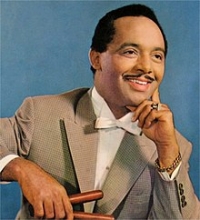
Dámaso Pérez Prado (December 11, 1916 – September 14, 1989) was a Cuban bandleader, pianist, composer and arranger who popularized the mambo in the 1950s. His big band adaptation of the danzón-mambo proved to be a worldwide success with hits such as "Mambo No. 5", earning him the nickname "King of the Mambo". In 1955, Prado and his orchestra topped the charts in the US and UK with a mambo cover of Louiguy's "Cherry Pink (and Apple Blossom White)". He frequently made brief appearances in films, primarily of the rumberas genre, and his music was featured in films such as La Dolce Vita.
Rednex

Rednex is a Swedish musical group, originally consisting of the lead singer Mary Joe, alongside Bobby Sue, Ken Tacky, Billy Ray and Mup. The group enjoyed success throughout the 1990s with novelty hits such as "Cotton Eye Joe", "Old Pop in an Oak", "The Spirit of the Hawk" and "Wish You Were Here".
Backstreet Boys

Backstreet Boys are a Grammy-nominated American pop group. They were the first group launched by fallen boy band mogul Lou Pearlman. They have had 13 Top 40 hits on the Billboard Hot 100 and have sold approximately 100 million albums, making them the best selling boy band of all time; they were number 1 in concert and album sales from 1997-2005 (when they earned $533.1 million). Two of their albums - Millennium (at #36) and Backstreet Boys (at #40) - are among the top 40 most popular albums of all-time.
After returning to the music scene in 2005, their sound changed dramatically, incorporating only live instruments (some of which they play themselves) and a more guitar and piano driven pop rock sound. The four-member group consists of Nick Carter, Howie Dorough, Brian Littrell and A. J. McLean. Original member Kevin Richardson left the group on June 23, 2006 to begin a family, but the four-piece refused to rule out a possible return for the singer.
After returning to the music scene in 2005, their sound changed dramatically, incorporating only live instruments (some of which they play themselves) and a more guitar and piano driven pop rock sound. The four-member group consists of Nick Carter, Howie Dorough, Brian Littrell and A. J. McLean. Original member Kevin Richardson left the group on June 23, 2006 to begin a family, but the four-piece refused to rule out a possible return for the singer.
Marvin Gaye
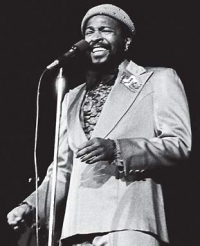
Marvin Pentz Gay, Jr., better known as Marvin Gaye (April 2, 1939 - April 1, 1984) was an American singer-songwriter, drummer, pianist and instrumentalist. Starting his career as a member of the successful doo-wop group The Moonglows in the late fifties, he ventured into a solo career shortly after the group disbanded in 1960 signing with the Tamla subsidiary of Motown Records. After a year as a session drummer, Marvin quickly ranked as the label's top-selling solo artist during the sixties. Due to numerous solo hits including "How Sweet It Is (To Be Loved By You)", "Ain't That Peculiar", "I Heard It Through the Grapevine" and his duet singles with singers such as Mary Wells and Tammi Terrell, he was crowned "The Prince of Motown"and "The Prince of Soul".
Notable for fighting the hit-making, but creatively restrictive, Motown record-making process, in which performers and songwriters and record producers were generally kept in separate camps, Marvin was able to prove with albums like his groundbreaking 1971 album, What's Going On and his 1973 album, Let's Get It On, that he was able to produce his own form of musical expression without relying on the Motown system inspiring fellow Motown artists such as Stevie Wonder nd Michael Jackson to do the same.
His mid-1970s work including the Let's Get It On and I Want You albums helped to influence the quiet storm, urban adult contemporary and slow jam genres. After a self-imposed European exile in the late seventies, Marvin returned to prominence briefly on the 1982 Grammy-winning hit, "Sexual Healing" and the Midnight Love album before his tragic death at the hands of his clergyman father on April 1, 1984. He was posthumously inducted to the Rock and Roll Hall of Fame in 1987.
Notable for fighting the hit-making, but creatively restrictive, Motown record-making process, in which performers and songwriters and record producers were generally kept in separate camps, Marvin was able to prove with albums like his groundbreaking 1971 album, What's Going On and his 1973 album, Let's Get It On, that he was able to produce his own form of musical expression without relying on the Motown system inspiring fellow Motown artists such as Stevie Wonder nd Michael Jackson to do the same.
His mid-1970s work including the Let's Get It On and I Want You albums helped to influence the quiet storm, urban adult contemporary and slow jam genres. After a self-imposed European exile in the late seventies, Marvin returned to prominence briefly on the 1982 Grammy-winning hit, "Sexual Healing" and the Midnight Love album before his tragic death at the hands of his clergyman father on April 1, 1984. He was posthumously inducted to the Rock and Roll Hall of Fame in 1987.
Charles Gounod

Charles-François Gounod (/ɡuːˈnoʊ/; French: ; 17 June 1818 – 17 or 18 October 1893) was a French composer, best known for his Ave Maria, based on a work by Bach, as well as his opera Faust. Another opera by Gounod that is still performed today is Roméo et Juliette.
Gounod died at Saint-Cloud in 1893, after a final revision of his twelve operas. His funeral took place ten days later at the Church of the Madeleine, with Camille Saint-Saëns playing the organ and Gabriel Fauré conducting. He was buried at the Cimetière d'Auteuil in Paris.
Gounod died at Saint-Cloud in 1893, after a final revision of his twelve operas. His funeral took place ten days later at the Church of the Madeleine, with Camille Saint-Saëns playing the organ and Gabriel Fauré conducting. He was buried at the Cimetière d'Auteuil in Paris.
Johann Strauss

Johann Strauss I (March 14, 1804 – September 25, 1849; German: Johann Baptist Strauß, Johann Strauss (Vater); also Johann Baptist Strauss, Johann Strauss, Sr., the Elder, the Father), born in Vienna, was an Austrian Romantic composer famous for his waltzes, and for popularizing them alongside Joseph Lanner, thereby setting the foundations for his sons to carry on his musical dynasty. His most famous piece is probably the Radetzky March (named after Joseph Radetzky von Radetz), while his most famous waltz is probably the Lorelei Rheinklänge, Op. 154.
Nickelback
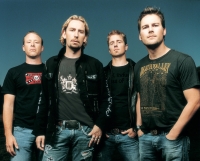
Nickelback is a Canadian post-grunge band formed in Hanna, Alberta by Chad Kroeger, Mike Kroeger, Ryan Peake and then-drummer Brandon Kroeger (the current drummer of Nickelback being Daniel Adair). The band is one of the most popular of the modern post-grunge genre, along with groups such as 3 Doors Down and Daughtry, performing in a significantly more radio-friendly style than the traditional, early 1990s grunge music era. Although the founders of the band hail from Hanna, Alberta, a small town east of Calgary, they are now based in Vancouver, British Columbia, Canada. The band's name originates from the nickel in change that band member Mike Kroeger gave customers at his Starbucks job—he would frequently say, "Here's your nickel back".
The band is signed to EMI at home and Roadrunner Records for the rest of the world. In July 2008, the band signed with Live Nation for three touring and album cycles, with an option for a fourth cycle. The contract includes recordings, touring, merchandise and other rights.
The band is signed to EMI at home and Roadrunner Records for the rest of the world. In July 2008, the band signed with Live Nation for three touring and album cycles, with an option for a fourth cycle. The contract includes recordings, touring, merchandise and other rights.
Paul Taffanel
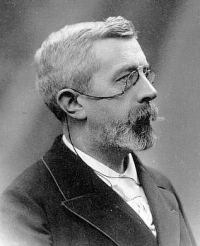
Claude-Paul Taffanel (16 September 1844 – 22 November 1908) was a French flautist, conductor and instructor, regarded as the founder of the French Flute School that dominated much of flute composition and performance during the mid-20th century.Born in Bordeaux, Taffanel received his first lessons on the flute from his father at the age of nine. After giving his first concert at the age of ten, he studied with Vincent Dorus at the Paris Conservatoire. Once he graduated in 1860, he won his first of several awards for flute performance at age sixteen. Taffanel built a substantial career as both soloist and orchestral player over 30 years, becoming known as the foremost flautist of his time and reestablishing the instrument in the mainstream of music.
Metoor Garden

Dong Shancai is determined to excel at her dream university, where she encounters an elite clique of dashing, popular high-achievers -- and finds love.
Sergey Rahmaninov
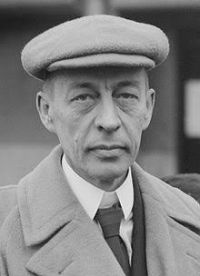
Sergei Vasilievich Rachmaninoff, Russian composer, conductor, pianist. He is one of the greatest pianists and composers of the 20th century. He was the last great composer of Russian romanticism. After the October Revolution in his country, he settled in the USA and became a US citizen
Richard Strauss
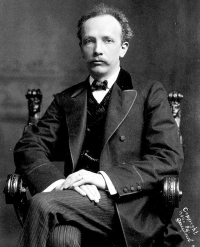
Richard Georg Strauss (German pronunciation: ; 11 June 1864 – 8 September 1949) was a German composer, conductor, pianist, and violinist. Considered a leading composer of the late Romantic and early modern eras, he has been described as a successor of Richard Wagner and Franz Liszt. Along with Gustav Mahler, he represents the late flowering of German Romanticism after Wagner, in which pioneering subtleties of orchestration are combined with an advanced harmonic style.
William Baines
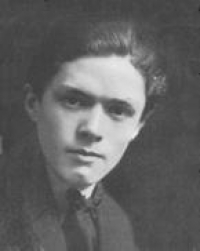
William Baines (26 March 1899 – 6 November 1922) was an English pianist and composer who wrote more than 150 works for solo piano and a number of larger orchestral works before his death from tuberculosis at the age of 23.[1
Emil Von Sauer
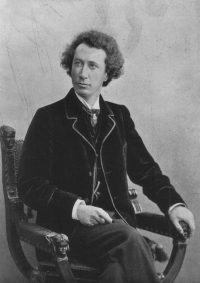
Emil Georg Conrad von Sauer was a German composer, pianist, score editor, and music teacher. He was a pupil of Franz Liszt and one of the most distinguished pianists of his generation. Josef Hofmann called von Sauer "a truly great virtuoso."
Real Book

The Real Book refers to compilations of lead sheets for jazz standards. It usually refers to the first volume of a series of books transcribed and collated by Berklee College of Music students during the 1970s.The name is derived from "fake books", so called because they contained only rough outlines of music pieces rather than fully notated scores. Early fake books were often used by professional bands who performed mostly standards, often more geared to society and dance bands rather than jazz ensembles, and devoted much space to show tunes, novelty tunes, traditional jazz, etc. The first three Real Book volumes, in contrast, contained many bebop and other jazz standards that were likely to be encountered on jazz gigs at the time. For this reason, the books were quickly adopted among jazz players in the 1970s, particularly on the east coast.
Marc-André Hamelin
Marc-André Hamelin, OC, CQ (born September 5, 1961), is a Canadian virtuoso pianist and composer. Hamelin is recognized worldwide for the originality and technical proficiency of his performances of the classic repertoire. He has received 11 Grammy Award nominations.
P. Bagnasco
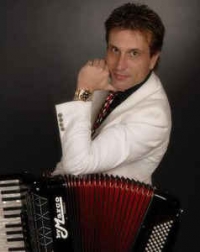
P. Bagnasco Musical artist Songs Salta e balla Caro sax (Liscio compilation) · 2014 La trottola Caro sax (Liscio compilation) · 2014 La scatenata Caro sax (Liscio compilation) · 2014
michel berger
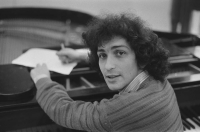
Michel Berger (born Michel Jean Hamburger; 28 November 1947 – 2 August 1992) was a French singer and songwriter. He was a figure of France's pop music scene for two decades as a singer and as a songwriter for such artists as Françoise Hardy, Johnny Hallyday, and his wife, France Gall. He died of a heart attack at the age of 44.
Pirates of the Caribbean: The Curse of the Black Pearl
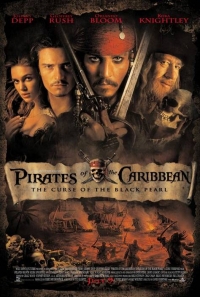
Pirates of the Caribbean: The Curse of the Black Pearl is a 2003 adventure film, based on the the Pirates of the Caribbean ride at Disney theme parks. The story follows pirate Captain Jack Sparrow (Johnny Depp) and blacksmith Will Turner (Orlando Bloom) as they rescue Elizabeth Swann (Keira Knightley) from her kidnapping by the cursed crew of the Black Pearl, captained by Hector Barbossa (Geoffrey Rush).
The film was directed by Gore Verbinski and produced by Jerry Bruckheimer, and became the first Walt Disney Pictures release to earn a PG-13 rating by the MPAA (all previous WDP releases were rated G or PG). The world premiere was held at Disneyland Resort in Anaheim, California, on June 28, 2003. The Curse of the Black Pearl was an unexpected success, with mostly positive reviews and grossing almost $654 million worldwide. The film became the first in a series, with two back-to-back sequels, Dead Man's Chest and At World's End, released. The film was nominated for five Academy Awards, including Best Actor for Depp.
The film was directed by Gore Verbinski and produced by Jerry Bruckheimer, and became the first Walt Disney Pictures release to earn a PG-13 rating by the MPAA (all previous WDP releases were rated G or PG). The world premiere was held at Disneyland Resort in Anaheim, California, on June 28, 2003. The Curse of the Black Pearl was an unexpected success, with mostly positive reviews and grossing almost $654 million worldwide. The film became the first in a series, with two back-to-back sequels, Dead Man's Chest and At World's End, released. The film was nominated for five Academy Awards, including Best Actor for Depp.
Jesse McCartney
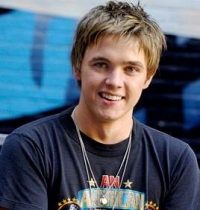
Jesse McCartney (born April 9, 1987) is an American pop/R&B singer-songwriter and actor. McCartney initially came to fame in the early 2000s as the youngest member of the boy band Dream Street. He subsequently branched out into a solo career, having appeared on the television series Summerland.
Franz Schubert

Franz Peter Schubert (German pronunciation: ; January 31, 1797 – November 19, 1828) was an Austrian composer. He wrote some 600 Lieder, nine symphonies (including the famous "Unfinished Symphony"), liturgical music, operas, some incidental music, and a large body of chamber and solo piano music. He is particularly noted for his original melodic and harmonic writing.
Schubert was born into a musical family, and received formal musical training through much of his childhood. While Schubert had a close circle of friends and associates who admired his work (amongst them the prominent singer Johann Michael Vogl), wide appreciation of his music during his lifetime was limited at best. He was never able to secure adequate permanent employment, and for most of his career he relied on the support of friends and family. He made some money from published works, and occasionally gave private musical instruction. In the last year of his life he began to receive wider acclaim. He died at the age of 31 of "typhoid fever", a diagnosis which was vague at the time; several scholars suspect the real illness was tertiary syphilis.
Interest in Schubert's work increased dramatically in the decades following his death. Composers like Franz Liszt, Robert Schumann and Felix Mendelssohn discovered, collected, and championed his works in the 19th century, as did musicologist Sir George Grove. Franz Schubert is now widely considered to be one of the greatest composers in the Western tradition.
Schubert was born into a musical family, and received formal musical training through much of his childhood. While Schubert had a close circle of friends and associates who admired his work (amongst them the prominent singer Johann Michael Vogl), wide appreciation of his music during his lifetime was limited at best. He was never able to secure adequate permanent employment, and for most of his career he relied on the support of friends and family. He made some money from published works, and occasionally gave private musical instruction. In the last year of his life he began to receive wider acclaim. He died at the age of 31 of "typhoid fever", a diagnosis which was vague at the time; several scholars suspect the real illness was tertiary syphilis.
Interest in Schubert's work increased dramatically in the decades following his death. Composers like Franz Liszt, Robert Schumann and Felix Mendelssohn discovered, collected, and championed his works in the 19th century, as did musicologist Sir George Grove. Franz Schubert is now widely considered to be one of the greatest composers in the Western tradition.
Plain White T's
Plain White T's are an American rock band from Lombard, Illinois, formed in 1997 by high school friends Tom Higgenson, Dave Tirio, and Ken Fletcher. They were joined a short time later by Steve Mast. The group had a mostly underground following in Chicago basements, clubs, and bars in its early years.
Dracula Musical
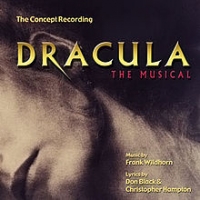
Dracula, the Musical is a musical based on the original 1897 Victorian novel by Bram Stoker. The score is by Frank Wildhorn, with lyrics and book by Don Black and Christopher Hampton.The show had its regional premiere at the La Jolla Playhouse, La Jolla, California, in 2001, playing to 115% capacity, earning the highest paid capacity for any world premiere production in the playhouse's history. It then premiered on Broadway in 2004, starring Tom Hewitt as the vampire Count and Melissa Errico as the woman he loves, Mina Harker.
Edward weiss

New York, Sept 6, 1892; d New York, Sept 28, 1984). American pianist . Born into a musical German-Nordic family, he grew up in Europe and studied in Berlin with Alexander Rihm and Xaver Scharwenka, through whom he was introduced to Busoni.
Loise Mc Allister
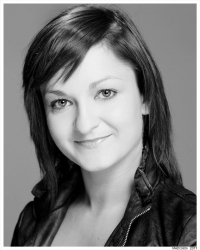
Professional Musical Theatre at Colins Performing Arts, Essex. My main goal is acting for tv, film and theatre but I am also a strong dancer and singer. I would also like to gain as much tv and acting experience as possible to aid my career. I am very interested in working for cruiselines as entertainment staff.
more
more
Serge Gainsbourg
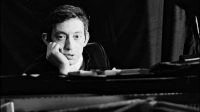
Serge Gainsbourg (French pronunciation: ; born Lucien Ginsburg; 2 April 1928 – 2 March 1991) was a French singer, songwriter, pianist, film composer, poet, painter, screenwriter, writer, actor and director. Regarded as one of the most important figures in French popular music, he was renowned for his often provocative and scandalous releases, as well as his diverse artistic output, which embodied genres ranging from jazz, mambo, world, chanson, pop and yé-yé, to rock and roll, progressive rock, reggae, electronic, disco, new wave and funk. Gainsbourg's varied musical style and individuality make him difficult to categorize, although his legacy has been firmly established and he is often regarded as one of the world's most influential popular musicians.
Mariah Carey

Mariah Carey (born March 27, 1970) is an American singer, songwriter, record producer, and actress. She made her recording debut in 1990 under the guidance of Columbia Records executive Tommy Mottola, and became the first recording artist to have her first five singles top the U.S. Billboard Hot 100 chart. Following her marriage to Mottola in 1993, a series of hit records established her position as Columbia's highest-selling act. According to Billboard magazine, she was the most successful artist of the 1990s in the United States.
Following her separation from Mottola in 1997, Carey introduced elements of hip hop into her album work, to much initial success, but her popularity was in decline when she left Columbia in 2001, and she was dropped by Virgin Records the following year after a highly publicized physical and emotional breakdown, as well as the poor reception given to Glitter, her film and soundtrack project. In 2002, Carey signed with Island Records, and after a relatively unsuccessful period, she returned to pop music in 2005.
Carey was named the best-selling female pop artist of the millennium at the 2000 World Music Awards. She has had the most number-one singles for a solo artist in the United States (eighteen; second artist overall behind The Beatles), where, according to the Recording Industry Association of America, she is the third best-selling female and sixteenth overall recording artist. In addition to her commercial accomplishments, Carey has earned five Grammy Awards, and is well-known for her vocal range, power, melismatic style, and use of the whistle register.
Following her separation from Mottola in 1997, Carey introduced elements of hip hop into her album work, to much initial success, but her popularity was in decline when she left Columbia in 2001, and she was dropped by Virgin Records the following year after a highly publicized physical and emotional breakdown, as well as the poor reception given to Glitter, her film and soundtrack project. In 2002, Carey signed with Island Records, and after a relatively unsuccessful period, she returned to pop music in 2005.
Carey was named the best-selling female pop artist of the millennium at the 2000 World Music Awards. She has had the most number-one singles for a solo artist in the United States (eighteen; second artist overall behind The Beatles), where, according to the Recording Industry Association of America, she is the third best-selling female and sixteenth overall recording artist. In addition to her commercial accomplishments, Carey has earned five Grammy Awards, and is well-known for her vocal range, power, melismatic style, and use of the whistle register.
Ravel

Joseph-Maurice Ravel (March 7, 1875 – December 28, 1937) was a French composer of Impressionist music known especially for his melodies, orchestral and instrumental textures and effects. Much of his piano music, chamber music, vocal music and orchestral music has entered the standard concert repertoire.
Ravel's piano compositions, such as Jeux d'eau, Miroirs and Gaspard de la Nuit, demand considerable virtuosity from the performer, and his orchestral music, including Daphnis et Chloé and his arrangement of Modest Mussorgsky's Pictures at an Exhibition, uses a variety of sound and instrumentation very effectively.
Ravel is perhaps known best for his orchestral work, Boléro (1928), which he considered trivial and once described as "a piece for orchestra without music."
According to SACEM, Ravel's estate earns more royalties than that of any other French musician. According to international copyright law, Ravel's works are public domain since January 1, 2008 in most countries. In France, due to anomalous copyright law extensions to account for the two world wars, they will not enter the public domain until 2015.
Ravel's piano compositions, such as Jeux d'eau, Miroirs and Gaspard de la Nuit, demand considerable virtuosity from the performer, and his orchestral music, including Daphnis et Chloé and his arrangement of Modest Mussorgsky's Pictures at an Exhibition, uses a variety of sound and instrumentation very effectively.
Ravel is perhaps known best for his orchestral work, Boléro (1928), which he considered trivial and once described as "a piece for orchestra without music."
According to SACEM, Ravel's estate earns more royalties than that of any other French musician. According to international copyright law, Ravel's works are public domain since January 1, 2008 in most countries. In France, due to anomalous copyright law extensions to account for the two world wars, they will not enter the public domain until 2015.
Elthon John & Tim Rice
Elton John and Tim Rice's Aida is a 1999 concept album that contains songs from, but predates the main production of, the 2000 musical Aida.With music by Elton John and lyrics by Tim Rice, the album features Elton John performing the songs along with pop stars Janet Jackson, Tina Turner, Sting, Lenny Kravitz, Shania Twain, Boyz II Men, Spice Girls, James Taylor, LeAnn Rimes, Kelly Price, Lulu, Angelique Kidjo, and Dru Hill. Additionally, two tracks, "A Step Too Far" and "Elaborate Lives", feature the voices of Aida cast-members-to-be Heather Headley and Sherie Rene Scott. The album was certified gold in April 1999 by the RIAA.
Howls Moving Castle
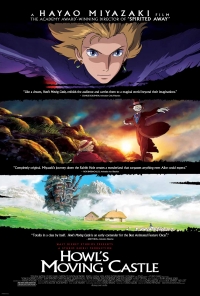
Howl's Moving Castle is a 2004 Japanese animated steampunk fantasy film written and directed by Hayao Miyazaki of Studio Ghibli and based on Diana Wynne Jones' novel of the same name. Mamoru Hosoda, director of two seasons and one movie from the Digimon series, was originally selected to direct but abruptly left the project, leaving the then retired Miyazaki to take up the director's role.
The film had its world premiere at the Venice Film Festival on September 5, 2004 and was released in Japanese theaters on November 20, 2004. It went on to gross $231,710,455 worldwide, making it one of the most financially successful Japanese films in history. The film was subsequently dubbed into English by Pixar's Peter Docter and distributed in North America by Walt Disney Pictures. It received a limited release in the United States and Canada beginning June 10, 2005 and was released nationwide in Australia on September 22 and in the UK the following September.
The film had its world premiere at the Venice Film Festival on September 5, 2004 and was released in Japanese theaters on November 20, 2004. It went on to gross $231,710,455 worldwide, making it one of the most financially successful Japanese films in history. The film was subsequently dubbed into English by Pixar's Peter Docter and distributed in North America by Walt Disney Pictures. It received a limited release in the United States and Canada beginning June 10, 2005 and was released nationwide in Australia on September 22 and in the UK the following September.
Josquin des Prez
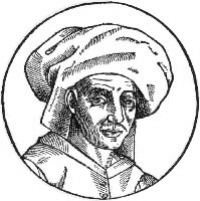
Josquin des Prez (French: ; c. 1450/1455 – 27 August 1521), often referred to simply as Josquin, was a French composer of the Renaissance. He was the most famous European composer between Guillaume Dufay and Giovanni Pierluigi da Palestrina, and is usually considered to be the central figure of the Franco-Flemish School. Josquin is widely considered the first master of the high Renaissance style of polyphonic vocal music that was emerging during his lifetime.
Kimagure orange road

Kimagure Orange Road is a Japanese manga series written and illustrated by Izumi Matsumoto. It was serialized in Weekly Shōnen Jump magazine from 1984 to 1987, with the chapters collected into 18 tankōbon volumes by Shueisha.
Giacomo Meyerbeer
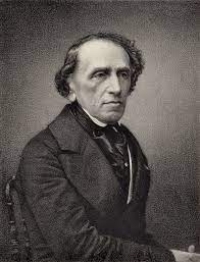
Giacomo Meyerbeer (born Jacob Liebmann Beer; 5 September 1791 – 2 May 1864) was a German opera composer of Jewish birth, "the most frequently performed opera composer during the nineteenth century, linking Mozart and Wagner". With his 1831 opera Robert le diable and its successors, he gave the genre of grand opera 'decisive character'. Meyerbeer's grand opera style was achieved by his merging of German orchestra style with Italian vocal tradition. These were employed in the context of sensational and melodramatic libretti created by Eugène Scribe and were enhanced by the up-to-date theatre technology of the Paris Opéra.
John Reid
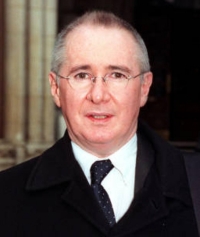
John Reid (born 9 September 1949) is a Scottish former music manager, known for being the manager and former lover of singer Elton John as well as for ...
 Sheet Music Giant is a site for those who wants to access popular sheet music easily,
letting them download the sheet music for free for trial purposes.
It's completely free to download and try the listed sheet music, but you have to delete the files after 24 hours of trial.
Don't forget, if you like the piece of music you have just learned playing,
treat the artist with respect, and go buy the original sheet music.
Sheet Music Giant is a site for those who wants to access popular sheet music easily,
letting them download the sheet music for free for trial purposes.
It's completely free to download and try the listed sheet music, but you have to delete the files after 24 hours of trial.
Don't forget, if you like the piece of music you have just learned playing,
treat the artist with respect, and go buy the original sheet music.